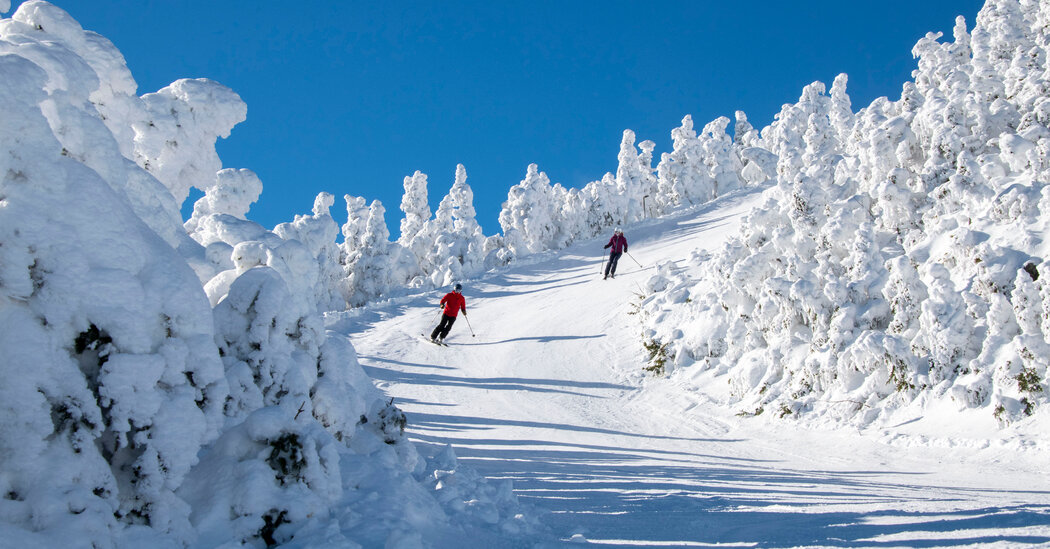
Settling into the first tram of the morning at Vermont’s Jay Peak resort last month, I looked down to see a young boy wearing a neon helmet pressed against the window, his father next to him, as excited as I was to ski the foot of fresh snow. The boy told me that he was 10 years old. I asked him why he liked coming to Jay Peak.
“Because of the Jay Cloud,” he said matter-of-factly, as if it were obvious. “It has the best snow.” As if on cue, the world outside the aerial tram car suddenly went from blue to white. Sixty of us in the rising tram were in our own personal snow globe.
The mystique of Jay Peak, the northernmost ski area in Vermont, is intimately bound to the Jay Cloud, a mythical storm cloud that hovers over its rocky summit. The resort, five miles from Quebec, claims to receive more snow — an average of about 350 inches — than any resort east of the American Rockies, and even more than many Western ski areas, including Park City, Utah, and Steamboat Springs, Colo.
But another cloud, for years, hung over Jay Peak Resort: Its former owners perpetrated the biggest financial fraud in ski industry history — as well as the biggest fraud in the state of Vermont.
In 2016, officials from the Securities and Exchange Commission seized the ski resort and accused its owners, the longtime Jay Peak president, Bill Stenger, and a Miami businessman named Ariel Quiros, of defrauding foreign investors of $200 million in a Ponzi-like scheme. Both men landed in jail. The ski area remained open while under federal receivership, emerging from it in the fall 2022 when the area was purchased by the Park City-based Pacific Group Resorts for $76 million.





